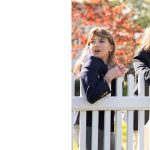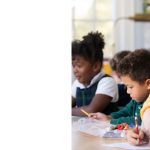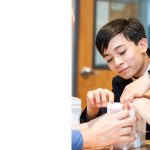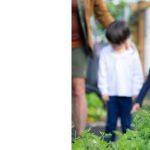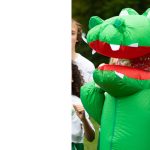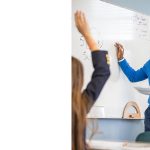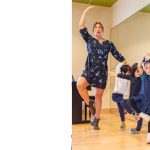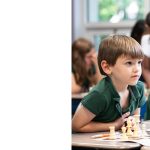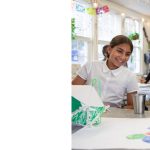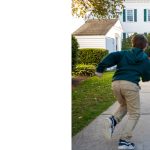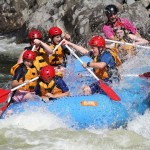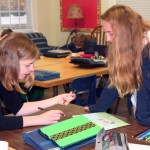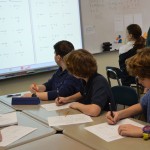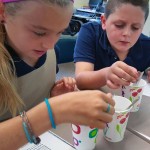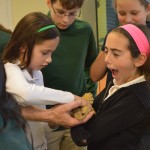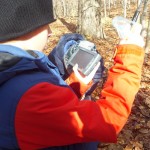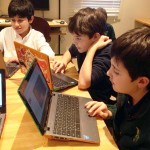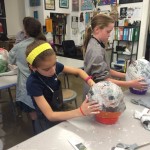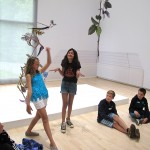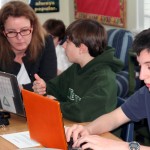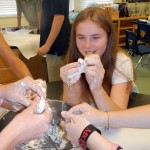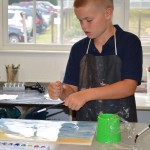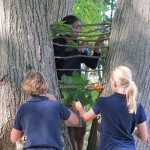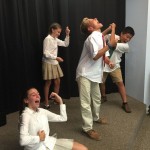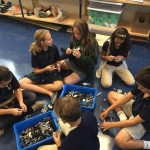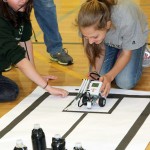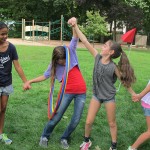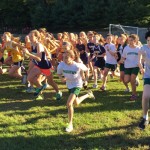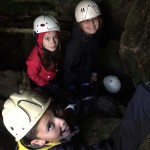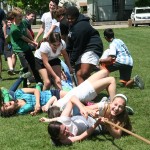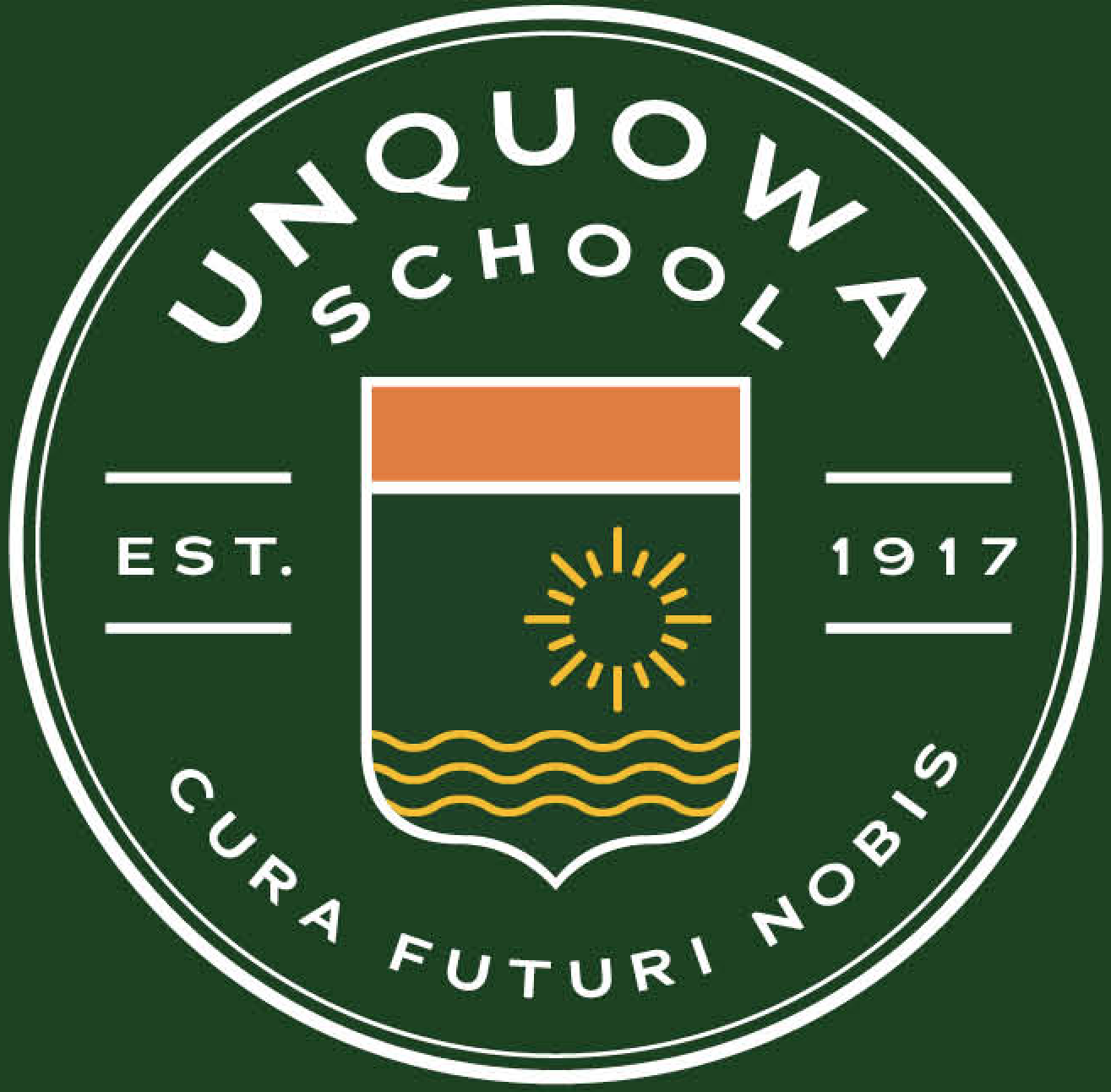“As our son approaches graduation, I asked him, ‘What makes Unquowa so special?’ Without hesitation he said, ‘The teachers really bond with the kids.’ It is that bond with his caring and committed teachers that has fueled our son’s desire to work hard and excel, not only in the classroom, but on the athletic fields, theatrical plays, musical productions, science fairs and in the technology lab. His teachers know when to push and challenge him. This bond and his solid relationships with the devoted Unquowa teachers has fostered his self advocacy skills. We are confident that he is well prepared for high school and has the skills to be successful.”
—Unquowa Parent
Adolescence: A Pivotal Point in Academic and Social Life
It is no secret that Middle School is perhaps the trickiest stage of development for kids to go through. Navigating that stage in a PreK – Grade 8 environment, as opposed to a large Middle School environment, can make the difference between spending those years focused on social growth alone and spending it with adult role models who can both support that social journey through adolescence and offer a robust academic experience as well.
Curriculum Grades 5-8
At Unquowa, the transition to Upper School is gradual. While still somewhat self-contained, the fifth grade experiences a moderate change in classroom organization which reflects the beginning of a departmentalized system characteristic in grades six, seven and eight. The Upper School curriculum includes mathematics, science, language arts and social studies in fifth grade, humanities which integrate English and social studies in grades six through eight, Spanish or Mandarin, visual and performing arts, and daily P.E.
Athletics and other co-curricular activities such as yoga, literary magazine and inventors club, occur at the end of the school day. While technology is a tool used in all classes, all grades have a separate technology class which includes a robotics curriculum that starts in fourth grade and runs through eighth.
- The science program in sixth, seventh, and eighth grades includes the study of earth, life, chemical and physical sciences, providing students with the necessary background for high school science courses. While a text provides the basis for each year’s curriculum, labs and field experiences breathe real life into the science program. River study in our school’s brook, trips on Long Island Sound aboard the Maritime Museum’s research vessel and spelunking in Tory’s Cave in New Milford are examples of how we connect textbook knowledge to authentic learning.
- Mathematics is taught in small groups. Fifth and sixth grade math instruction focuses on fundamental number operations with whole numbers, fractions and decimals. Problem solving strategies and strong math logic continue to be emphasized through the use of manipulatives and challenging word problems. A pre-algebra program is presented to seventh graders, and eighth graders study algebra, with the more advanced students completing Algebra One. Beginning in sixth grade, students may participate in Mathcounts, a national math coaching and competition program for middle school students.
- In Upper School, students continue to learn to read like writers, write like readers and think as global citizens through the lenses of both history and current events. Our fifth grade program focuses on developing and improving the student’s reading comprehension and vocabulary skills, introducing and developing a more sophisticated understanding of literary analysis and the conventions of literature, and developing the student’s writing skills, both in the area of composition and editing. Literature classes use classic and contemporary trade books—both fiction and nonfiction—and combine the practice of full-class reads, group choices, and individual reading. The writing workshop model informs the writing classroom, and students compose both fiction and nonfiction directly on computer beginning in the fifth grade.
- Our fifth grade social studies program allows students to learn about exploration of North America and early American history and government.
- English and history are integrated under the lens of humanities in sixth through eighth grades and co-taught by English and history teachers in larger blocks of time. Guided by themes, sixth graders focus on world regions and ancient civilizations, seventh grade is devoted to the study of geography of the world, and the humanities program in eighth grade includes a more in-depth study of American history and government. Current events are discussed in all grades and framed to relate to the themes at hand. Both fiction and nonfiction reading and writing connect with these themes. Again, to bring life to historical and geographical concepts, field experiences occur at each grade through our relationship with both The Fairfield Museum and History Center, The Fairfield Audubon, The Aldrich Contemporary Art Museum.
- Research is an integral component of all Upper School classes, and its methodology and style are guided by the teacher and encouraged as is developmentally appropriate.
- Exposure to public speaking, which students have experienced in all grades at the classroom level, culminates in eighth grade when each student prepares and presents a speech at an all-school assembly.
- Service learning activities happen in all grades and culminate for eighth graders as year-long weekly experiences working in a reverse inclusion program at St. Vincent’s Special Needs Services in Bridgeport, a program for which our school has received a Leading Edge Award from NAIS and with a local organization, and Park City Composting Initiative on both learning the scientific process of composting and maintaining our systems here at school.
- The makerspace provides us with bigger and better space for activities in all disciplines that involve making, un-making, tinkering and designing. It is essentially the place where the garage meets the classroom, and offers students a chance to bring their ideas to life using materials ranging from wood, metal and fabric to robotic components and 3-D printing.
- Chromebooks are given to each fifth through eighth grade student and thoughtful use of these tools and the Google environment through which our students write, communicate with teachers, store work, do research and access online texts begins in fifth grade and grows through sixth, seventh and eighth.
- Students are gradually given more long-term assignments, and there is an increasing expectation for independent work. It is a time when student responsibility increases to ensure not only a positive self-image but also a respect for peers and understanding of the value of collaboration.
Upper School Advisory
Adolescence is a pivotal point in the academic and social life of a child, and success in each is inextricable from the other. Consequently, sixth, seventh and eighth grade students are assigned a faculty advisor who meets weekly with their advisory as a group and with students individually to discuss concerns—both social and academic. The particular needs and characteristics of the pre-adolescent and adolescent child, as well as individual academic, social and emotional progress, are addressed by the faculty in homeroom with students, just as they are during the weekly grade-level and faculty meetings. Having placed equal importance on both the cognitive, social and emotional growth of our Middle School students, we feel confident that we send them on to both day and boarding high schools prepared to do their best academically and to successfully navigate the challenging waters of late adolescence.
Field Experience
In Upper School, regular and meaningful field experiences reinforce the classroom experience, breathe life into the lessons learned there and expose students to the people and resources—both natural and artistic—about which they learn in school. Some of these experiences continue to take place at The Fairfield Audubon Society, and The Fairfield Museum and History Center with whom our school has had a long-standing relationship. In Upper School, however, our students and faculty travel farther off – for a show on Broadway, rafting trips down the Deerfield River and overnight trips to Nature’s Classroom.
Assessment
Assessment of students continues to take place in Upper School through a variety of written and verbal assessments along with both individual and collaborative projects. Reading progress is formally documented three times per year through sixth grade and math progress is assessed in connection with curricular units of study. Letter grades in academic subjects continue through Upper School and final exams begin in sixth grade. Parents continue to receive interim and formal narrative progress reports each trimester. Similarly, parent conferences are scheduled twice a year, and additionally at the request of the parent.


